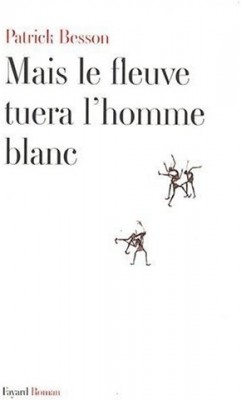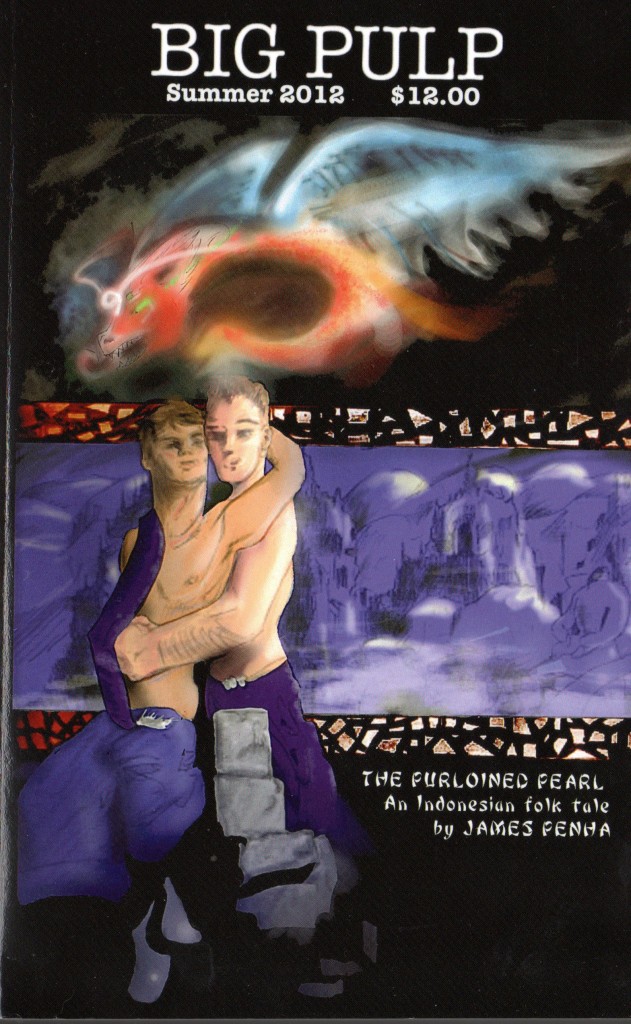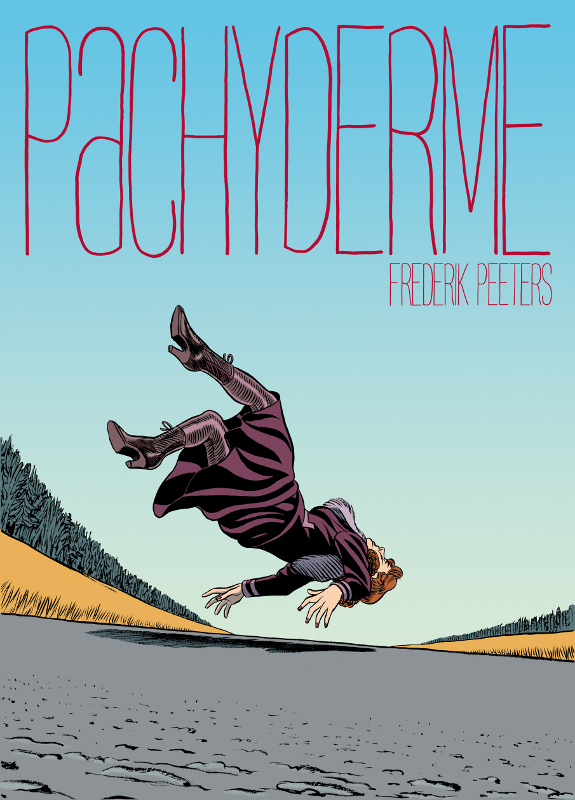October 31st, 2012 § § permalink

Poe in Goth Ink by Lex
The late André-Marcel Adamek, who died in January, would like to wish you a Happy Halloween from beyond the grave with his mean and mournful tale, “Barnaby’s Goose,†in Issue 17 of The Dr. T.J. Eckleburg Review (formerly The Moon Milk Review), out as of today. Here’s an excerpt:
The goose soon revealed her terrible nature as a merciless conqueror. At barely six months of age, she picked out the only pretender to absolute power in the courtyard, an Irish cock redder than a ripe strawberry who violated each of the frail hens under his watch thrice daily. He carried out these misdeeds casually, falling on his prey with his claws and giving each a few solid thrusts with his rump before wandering off like a tabernacle saint, soul at ease and loins voided.
Nelly, whose head hovered three inches over the rooster’s comb, didn’t even bother challenging her rival to single combat. While he was rummaging about in the dungheap, chuckling like a senator, she lunged at his genitals, and with a twist of her neck tore off his male wiles, which she spat out disgustedly in the runnels of slurry before reassuming her noble, immaculate air.
Adamek and I met but once, and I miss him. What a gentleman, what a storyteller.
The late André-Marcel Adamek, who died in January, would like to wish you a Happy Halloween from beyond the grave with his mean and mournful tale “Barnaby’s Goose.†We met but once, and I miss him. What a gentleman, what a storyteller.
The late André-Marcel Adamek, who died in January, would like to wish you a Happy Halloween from beyond the grave with his mean and mournful tale “Barnaby’s Goose.†We met but once, and I miss him. What a gentleman, what a storyteller.
October 28th, 2012 § § permalink

Would someone immune to cuteness have taken this photo?
Nicole sometimes teases me about not liking Magoo enough, because I seem immune to his cuteness, but Magoo knows I like him just fine. I don’t have to say the words, not even if we ever get really drunk on beer, because then there’d be an awkward silence followed by hasty demurrals of the “Bro—gross!†variety. It’s a guy thing. Academic comrades, forgive the hackneyed homoerotic yuks.
So we schlepped all the way past the airport to the Halloween Pugtacular in Westchester today. They’d fenced off a section of park grass with sagging plastic orange netting; the mole dirt and bare, dusty patches completed the construction site impression. Two food trucks, one for crêpes and another for desserts, were parked on the basketball court blacktop. The crêpe truck had a nifty chrome Eiffel Tower lamp with a red shade on its café table. The other van, black and compact, offered everything from ice cream to hot bread pudding. Nicole got a root beer float.
The Pugtacular was sponsored by Pug Nation, a rescue that specializes in pugs. We’d adopted Magoo from them in March, so for him it was like revisiting the boys’ home, where his former nun teachers would nostalgically sigh his praises, and he could strut past the anxious new crop in their pens with a “See? You guys could luck out and live the dream too.†For us, it was more like a networking reception, in that every conversation consisted of the same canned introduction — about Magoo. To spice up the standard answer “He’s a pug-French bulldog mix,†I’ve decided to play a surrealist word game where I substitute for all dog breeds the names of gun manufacturers. “Oh, he’s part Mauser, part Smith and Wesson.†“What a darling Uzi mix!†Try it.
Volunteers ranged from kids to ladies of a certain age. Slim, affectionate gay men circulated snapping pics or wrangling pugs in feather ruffles and pink princess gauze. Costumes ran the gamut of those we’d seen and rejected on Amazon: shark, spider, caterpillar, butterfly, peacock, Superman, jailbird, clown, hot dog with ketchup scribble. There was even a pair of matching toy soldiers. I realized a few things:
- Magoo has made me like Magoo, but not dogs. I realize this every time I’m at the dog park, and want to tranq other people’s pets with a concealed blowpipe.
- Nor has he made me like dog people. Dog people are sometimes worse than dogs, because they can talk, and you can’t pretend not to understand them.
- He hasn’t even really made me like other pugs. The ones we saw today were a sorry bunch, like quivering heaps of mashed potatoes, who made me grateful, despite my angst-adjustment period last spring, that we’d snapped up Magoo when we did back in March. At the time, he was hotly contested — chiefly by a toad of a woman who vowed to restore him to his true name, Kilgore Trout (seeming surprised when I knew who that was), and to promote Pug Nation on her radio show — and now I know he is fondly remembered. Cue refrain: “He’s a very special dog!†I blame my pride in him on Stockholm Syndrome, an arrangement in which he, of course, is the kidnapper. It took getting a pet for me, who’d never had one, to realize I wasn’t a pet person, though exceptions, merit-based, can be made on a strictly individual basis.
Nicole who, like a normal human being, actually talked to people while we were there (instead of re-reading Thomas Nagel’s “What is it like to be a bat?†which concerns the impossibility of ever truly understanding the subjective experience of another creature), learned some interesting facts about Magoo’s misspent infancy, the rowdy days before we knew him, during which, according to his records, he was adopted and returned twice, like some duplicate Christmas toy. Apparently his rambunctiousness was of the sort that Pug Nation thought might deter people from adopting him. The lady who’d first picked him up from the shelter reported that on the way back to Pug Nation, he kept trying to leap into the front seat. When she reached her arm out to block him, he took it gently between his teeth and held that pose for the rest of the ride. This led us to reminisce about how Magoo chewed apart Nicole’s glasses the weekend we first got him, and all the vet bills he’s racked up around the various ailments, like mange, depression, and a respiratory infection, that he’d brought with him from his shelter days. I look into those hazel eyes and know it truly is impossible to ever understand what makes him break, as if in contemplation, from devotedly licking his paw, or just what his walnut brain seizes on in choosing, among indifferentiable dirt patches, the new poop spot he will circle and hunker over. It’s a fool animal can’t keep but eat what it just shat out whole (tidy acorns and unripe berries are particular temptations). He takes my disparagements of his intelligence in stride. Lately Magoo has learned to indicate he wants to play by coming up and nudging us with a toy in his mouth. It’s a breakthrough, I find: a form of communication that doesn’t somehow involve food.
On the way back to the car, we passed an extended family gathered for a birthday. I forget the kid’s name, but it was spray painted, with birthday greetings and the word RULZ, on a series of large cardboard boxes, as for TVs or washing machines, arranged in a baseball diamond, though they could, I imagined, have hosted any number of games in various configurations (spaceships! tunnels! transmogrifiers!). As we approached, we heard a girl shouting, “Look, Momma, look!†I stopped and asked if she wanted to pet Magoo. She did so, shyly at first, then more firmly, as kids will who aren’t used to dogs. Magoo was distracted, and took little notice, but she seemed satisfied.
“See, Momma?†she yelled as we left. I never was sure which one was her momma. “They friendly.â€
That was my favorite part of the day.
October 26th, 2012 § § permalink

I was recently pleased and surprised to discover that InTranslation, The Brooklyn Rail’s world lit site, had published an excerpt from Patrick Besson’s political thriller The River Will Kill the White Man in my translation. The novel, an intimate, ambitious geopolitical oil intrigue set in Africa, won a French Voices grant, though it has yet to find an English language publisher. To commemorate that publication (since I’ve never yet mentioned it on this site), I’ve unearthed an interview I did two years ago with Besson, for The Chattahoochee Review.
Born in 1956 to a Croatian mother and a Russian father, the unpredictable Patrick Besson burst precociously onto the scene with his first novel in 1974. He has since produced, with the same dizzying force that informs his headlong prose, more than twenty books, including his Croatian saga Dara (Albin Michel), winner of the 1985 Grand Prix du Roman de l’Académie Française. The Prix Renaudot and Prix Populiste followed ten years later, for his novel Les Braban (Albin Michel, 1995); in the meantime, he was dubbed “The Prince of Paradox†for shocking the world by championing Mike Tyson and the Serbians.
Besson has published more than 40 books—novels, story collections, and nonfiction. He is also a journalist for leading French newspapers Le Figaro, L’Humanité, and VSD. Communist by birth, polemicist by practice, prodigy by talent, and enfant terrible by trade, he shows great generosity towards young writers and contempt for Parisian literary circles, of which he is nevertheless a figure who values most, in his own words, “intellectual brutality.
1) Writers are often asked where they get their ideas, but in your case it might be better to ask: where do you get your opinions? Lively, witty, incisive, they litter and pepper your prose. How do you manage to arrive at your judgments—on characters, on politics—so quickly and accurately? Is it columnist’s habit, or rather an illusion of innumerable revisions?
I write both fiction and journalism. These are two very different professions, since one consists of closing yourself off to the world and the other of opening yourself up to it. My many opinions come from the many subjects that present themselves to me as a journalist, but it is the writer in me who drafts them.
2) Tell us a bit about the inspiration for your latest novel, The River Will Kill the White Man (Fayard 2009), from which the excerpt in this issue is taken. There seem to be hints, in the tone, of Graham Greene’s dry and brittle disillusion. Did you have other authors in mind when you decided to use the genre of political intrigue?
Yes, I have great admiration for Graham Greene and am always a bit sad when English writers visiting Paris tell me no one reads him anymore in England. I was also paying tribute to John Le Carré with this particular novel. » Read the rest of this entry «
October 24th, 2012 § § permalink
- The latest issue of Beneath Ceaseless Skies features Nicole Taylor’s “Hold a Candle to the Devilâ€: one of the stories that got her into Clarion and made Kim Stanley Robinson her undying fan. It takes place in the universe of her novel-in-progress, and involves some haunting gruesomeness. UPDATE: I was stupidly confused. It was another story in the same universe, with a candle, that KSR loved.
- James Smart at The Guardian runs one of the first reviews I’ve seen of A Chinese Life (read an excerpt at Words Without Borders), and it’s a good one:
Its tight focus gives you a wonderfully immediate sense of how one man was shaped by modern China, and the agonising struggles that took place around him.
This ambitious graphic novel pulls you to the chest of the world’s latest superpower, shows you something of what it has gained and lost, and lets you go, 60 years later, drained and intrigued and feeling as though you know China’s great, tangled present a little bit better.
- Big Pulp’s Summer 2012 issue is still available. It features a features a gruesome, blackly hilarious piece by contemporary Belgian chronicler Thomas Gunzig.  The unclassifiable, irrepressible Gunzig took Belgium’s top literary prize, the Prix Rossel, for his 2001 novel Mort d’un parfait bilingue; his most recent novel is the slasher homage and parody 10,000 Liters of Pure Horror (Diable Vauvert, 2007). The son of a noted cosmologist, he is known for his dark humor, absurdism, and the time he challenged editor Luc Pire, a Tae Kwon Do red belt, to a duel at the Brussels Book Fair over the rights to one of his own story collections. He won.

October 19th, 2012 § § permalink

As part of the 2012 Pacific Ancient and Modern Languages Association Conference, I’ll be on this awesome-looking panel:
Experimental Fiction
Session Chair:Â Sean Bernard, University of La Verne Session Time:Â Session 4: Saturday 8:30-10:00am Location:Â SU Pigott 208
Joshua Jensen, Claremont Graduate University
Discussing the writings of William T. Vollmann and Ben Marcus, this paper asks, how do works of experimental fiction abstain from the conventional deliverance of “meaning” without becoming nonsense?
Michael Miller, University of Louisville
The paper describes the ways in which Tom McCarthy’s Remainder functions as an anti-realist novel. Its deployment of non-descriptive language, flat characters, and spatially-driven narrative establishes the novel in the avant-garde category. I argue that its redefinition of the real through its emphasis on unreality makes Remainder a contemporary “realist†novel.
Bryan Hurt, University of Southern California
The aim of the talk is to expand our understanding of experimental fiction beyond the idea of aesthetic gameplay, something that has to do with originality or innovations in technique and style. By turning our gaze back to the 18th century, a time credited as the “birthplace†of both novel and experimental science, I plan to show that both fiction and experiment are deeply intertwined.
Edward Gauvin, University of Southern California
A “criti-fiction” of Calvino-esque whimsy and Borgesian paradox, in seventeen numbered sections, examining our cultural obsession with futures that never came to pass.
October 9th, 2012 § § permalink

Frédérik Peeters’ Pachyderm, which I’ve written about at Weird Fiction Review, is now available in English from Self-Made Hero.
“The book is very atmospheric and takes place in Switzerland during the ’50s. It tells the story of a woman who is married to a diplomat and cannot have children. Something happens to the husband early in the book and she takes the opportunity to reclaim her freedom and independence.â€
Another book of his I highly recommend is his series with Wazem called Koma, now available in English in a collected edition from Humanoids. It’s a fun romp with an instantly endearing heroine—a steampunk Matrix with chimneysweeps.
Here are some things I learned about him from Chris Thompson’s 2011 piece at PopCultureHound:
- Peeters is an avid reader, especially when it comes to sci-fi. He read a lot of Ray Bradbury, Brian Aldiss, J.G. Ballard, and others growing up. One of his goals is to create his own brand of ‘Franco science-fiction’.
- He was also influenced a lot by cinema before he discovered comics, particularly Stanley Kubrick (2001) and Ridley Scott (Blade Runner). Star Wars and Star Trek were not big influences, though he does acknowledge their presence in his early years.
- Comic influences came later on in the form of Moebius, Hergé, Charles Schulz, and others. Later he discovered other European artists, including Jean-Claude Forest (Barbarella). He is still very fond of Tintin and feels it stands up even today.
- His manga influences started with Otomo’s Akira, but he soon discovered Tezuka (Astro Boy), Masumoto (GoGo Monster), Urosawa (20th Century Boys), and more. Ideally he’d like to achieve a marriage between manga and classic European storytelling.
- Lupus, his sci-fi epic, was published as four massive volumes by Atrabile in Europe. It took Peeters four years to complete and has yet to be translated into English.
- Peeters doesn’t like to know the whole story ahead of time – it becomes boring to him. He prefers to explore with the characters and make discoveries as he goes along. For example, he’ll write 10 pages, then be thinking about the next 10 while he’s drawing those ones. It’s a very organic way to work.
- Some original art was being passed around the audience… a lot of Peeters’ work is drawn in segments, almost like comic strips or frames, which are then stuck together to form complete pages.
- Pachyderm was his homage to the American comedies of the ’30s and ’40s. They are one of his secret passions, though he doesn’t have the same level of wit as Billy Wilder and others of the time. He likens Pachyderm to a three-legged chair – it’s not comfortable or easy to read, but it leaves a lasting impression on the reader (or so he hopes). It’s also quite a surreal book with lots of illusion involved, so in many ways he considers it an experiment just like Blue Pills.
October 4th, 2012 § § permalink

I’m on a panel on “Humor & Speculative Fiction” organized by the fabulous Sara Armengot at the 2012 conference of the American Literary Translators Association at the Memorial Art Gallery in Rochester, New York.
Friday, October 5th
3:15 – 4:30 pm
What are some of the challenges specific to translating humor in speculative fiction? Panelists will discuss examples from the works of Russian satirist Mikhail Bulgakov, French novelist Antoine Volodine, Haitian American short story author Ibi Zoboi, and French writer and illustrator Guillaume Bianco.
Sara Armengot: Moderator
Iván Salinas: “Irony and Alternate Worlds in the Post-Exotic Work of Antoine Volodineâ€
Edward Gauvin: “Billy Fog and the Pleasures of Doggerelâ€
Lori Nolasco: “The Loogaroo Laughed in Spite of Herself: Translating Ibi Zoboi’s Survival Epic The Fire in Your Sky into French and Spanishâ€
Lenka Pánková: “And the Canadians Didn’t Laugh: Culturally Conditioned Humor in Mikhail Bulgakov’s The Master and Margarita in Translationâ€
October 2nd, 2012 § § permalink
October 1st, 2012 § § permalink
Happy October 1st, everybody! I know, you’re probably still hung over from that rager you threw last night for International Translation Day.
From around the web:
- my translation of Jean Ferry’s extremely short story “Kakfa, or the Secret Society” is up at The Cafe Irreal. Previously, my translation of his work have appeared at Weird Fiction Review (“The Society Tiger”) and in issue #3 of The Coffin Factory (“On the Frontiers of Plaster: A Few Notes on Sleep”). I’m currently working on his only book of stories, The Conductor, due out next fall from Wakefield Press.
- In the monthly comics round-up, The Onion A.V. Club gives a shout-out to Zeina Abirached’s A Game for Swallows. They’ve got the right idea:
“the Persepolis comparison doesn’t work against A Game Of Swallows, because while Abirached has a similar style to Satrapi—heavy use of blacks, with cartoony figures carved out in curvy white lines—her approach to the story is quite different.â€







